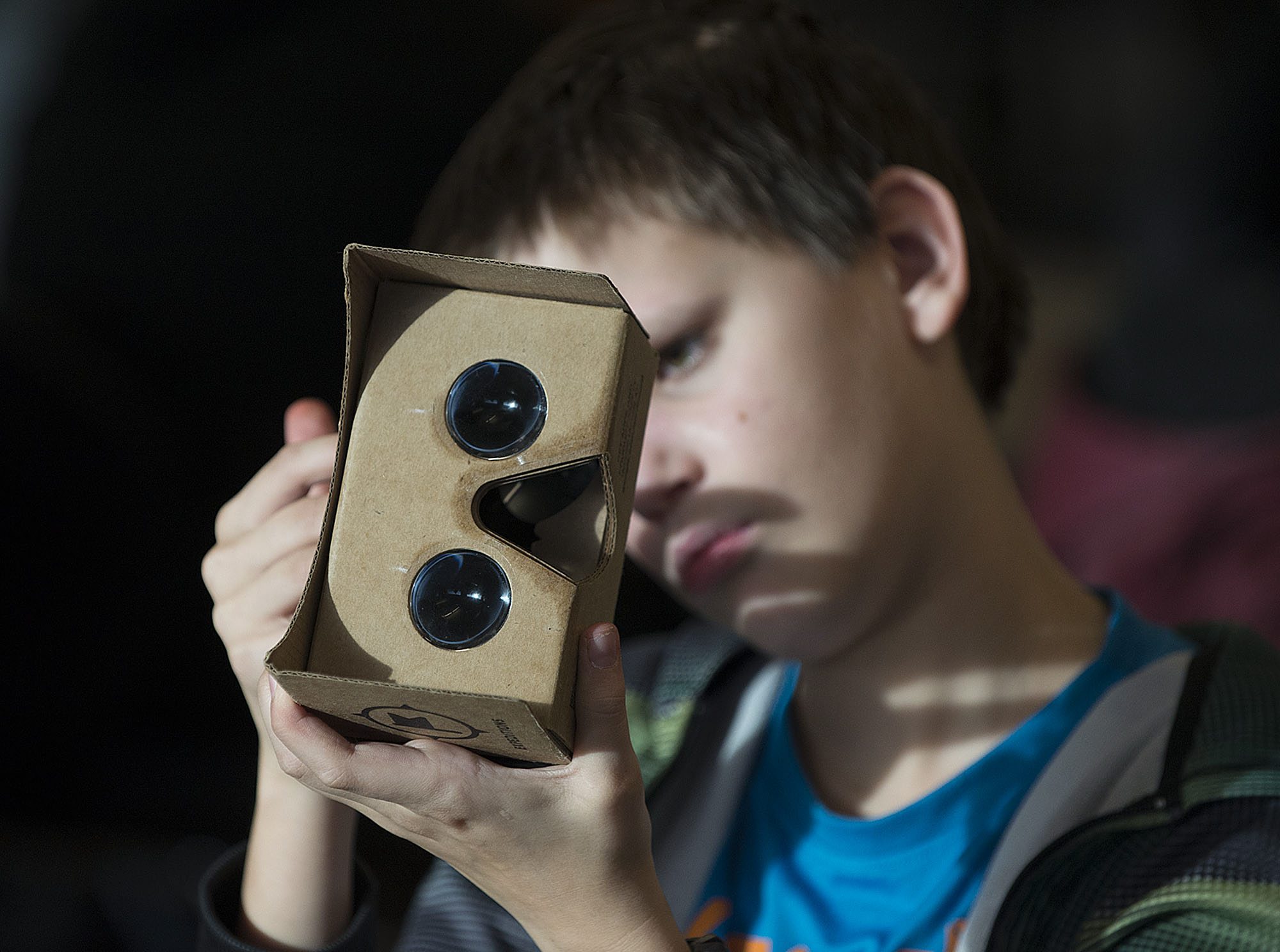BATTLE GROUND — A physical education class at Chief Umtuch Middle School on Thursday morning traveled to a World Cup soccer stadium in Brazil, went under the sea to observe sharks, and headed to the moon. The virtual field trip, courtesy of Google technology, was a hit.
Students from Guy Brown’s boys’ PE class filed into the school library and sat down at tables, where cardboard viewers rested in front of each student. The cardboard held a smartphone loaded with the Google Expeditions app. Throughout the day, about 500 Chief Umtuch students tried out the app. Three Battle Ground schools are participating in the pilot program to field test the cardboard viewers and virtual field trip app.
“The video games these kids play are all 3-D, but this is a 360-degree view,” said Evyan Wagner, the education technology coordinator for Battle Ground Public Schools. “The teacher controls what they’re seeing and how they’re seeing it.”
Before the students were allowed to pick up the viewers, Wagner laid out the two rules. First, hold them with both hands, she told them.




